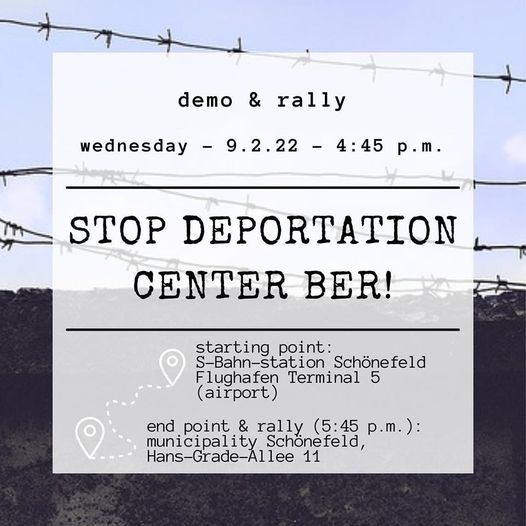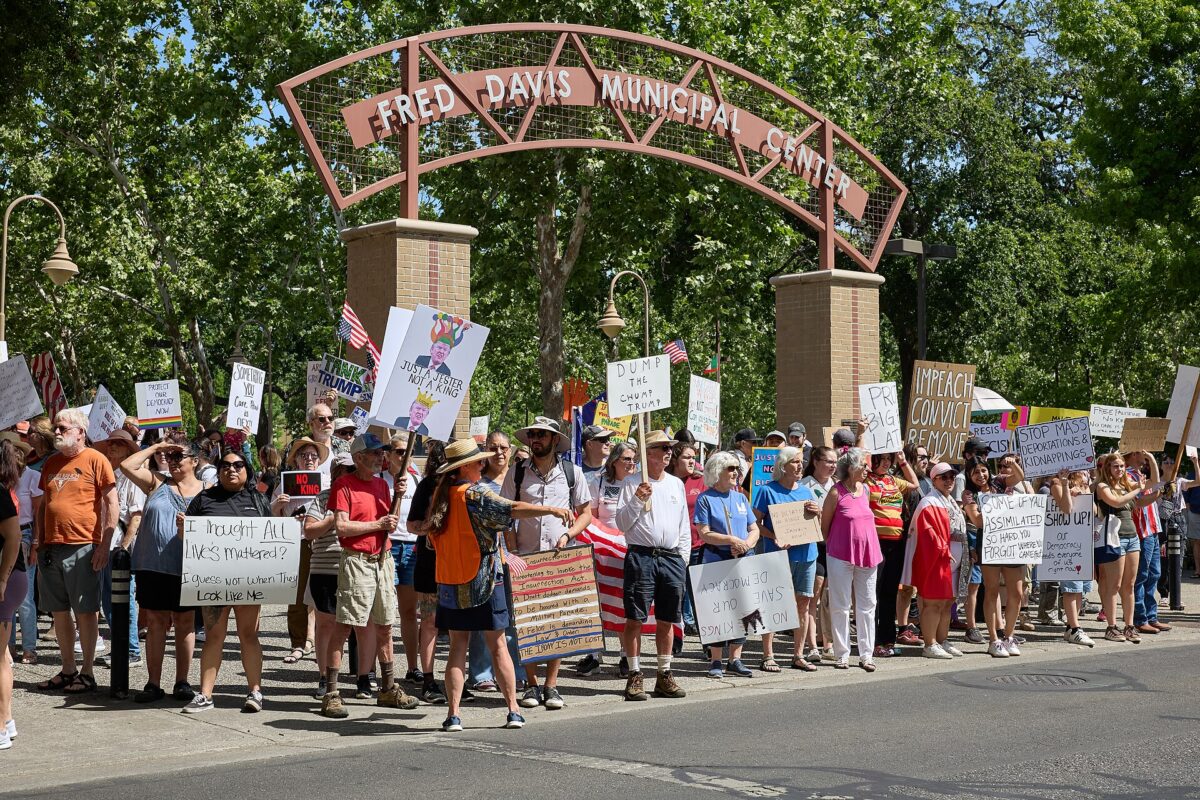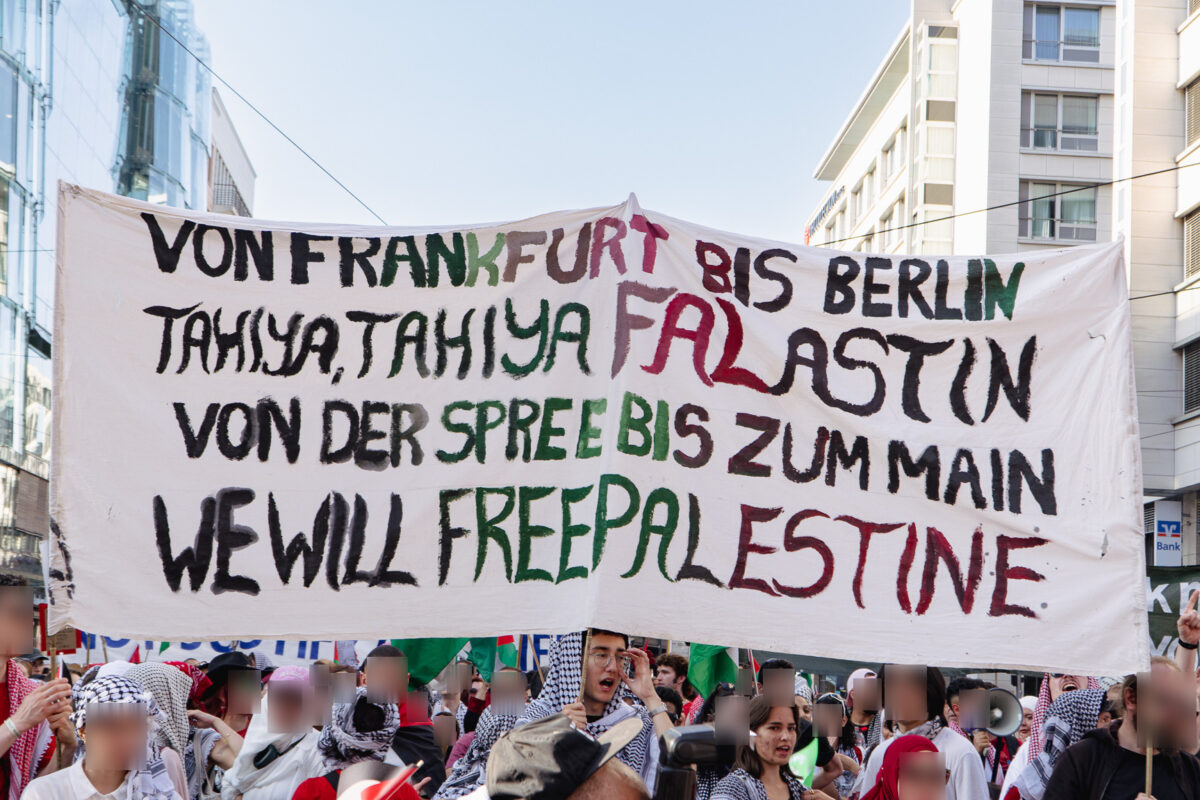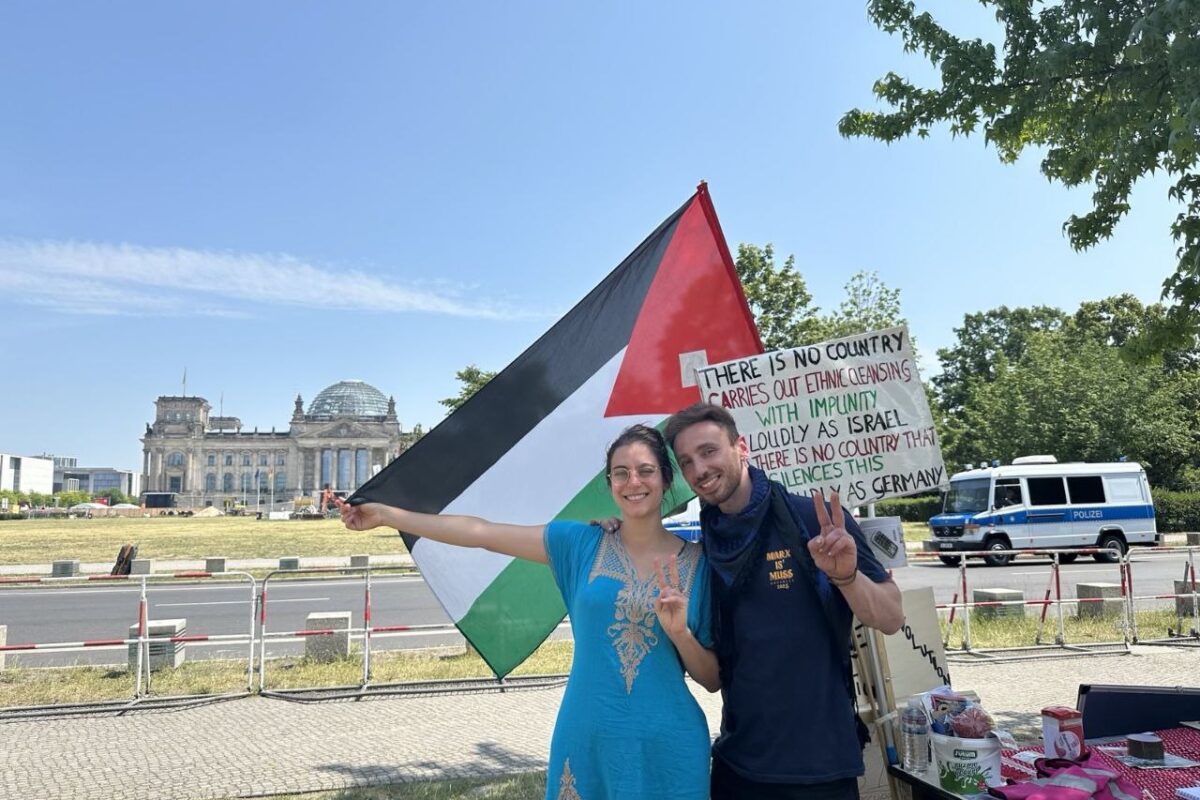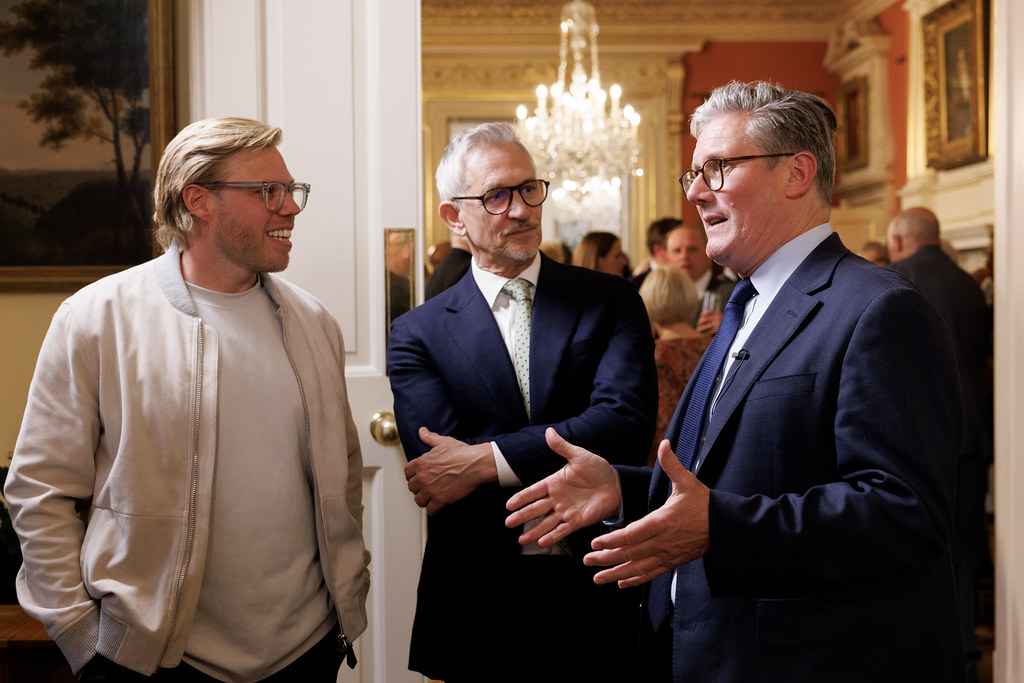Berlin’s new airport, named after the city’s former mayor Willy Brandt, opened after many years of delays at the end of 2020. It sits next to the old Schönefeld airport, and has also replaced Tegel airport in the north of the city. But it has now emerged that construction work on the airport is not entirely finished, and a new campaign has been launched to stop one particular building that was quietly announced at the end of last year, just before the new German government took office. With me to tell me more is Coco from the activist group No Border Assembly. Thank you very much for joining us, Coco.
Coco: Hi, thank you so much for having me. It’s a great opportunity to be here.
Your group learned about this planned building at the end of last year in an announcement on the website of Germany’s federal interior ministry. Can you tell me what they say is going to be built, and what the actual purpose of this building will be?
Coco: Yes, sure. They proposed that they are going to start building this year. They frame it as an entry and exit building. There are going to be different kinds of buildings under one roof. There’s an arrival building, a transit building, a function and justice building, a detention building and a repatriation building. What they want to emphasise is that it is mainly an efficient way to organise migration.
We clearly see that there is a strong focus on exit. They are quietly building a new deportation centre there. What is also critical is, that they said that this is a pilot project, and they want to build it in a way that everything is under one roof. It has a character that could be copied all over Europe. We see this clearly at the anchor centres at the European outer borders, that these kinds of facilities are kind of black boxes.
You can’t really understand the processes because it is all under one roof, it is not really transparent. And for people who are locked up there it is particularly difficult, because it is not so easy to get legal support or psychological support. Comrades of mine who have experience with this, were telling us that there is a huge psychological dimension, that you are captured in one place and everything is under one roof. And there is a lot of potential for state violence.
Some deportations are already happening through Berlin – for example, there was a mass deportation flight to Afghanistan which managed to take off despite protests back in April last year. Has the new airport already had an impact on the number of deportations – the old Schönefeld airport terminal building, which is now called Terminal 5, is still being used isn’t it?
Coco: Yes. It is used, but only for deportations at the moment. What we can clearly see is from the moment they opened the new airport, Terminal 5 is only used for deportations and the number has increased since then.
The German government suspended deportations to Afghanistan in August, after the Taliban came back into power. There has been a long-running debate in the mainstream media about whether to stop deportations to countries that are officially considered dangerous. But many people are being deported from Germany to other countries that are supposedly ‘safe’ destinations. What do you think about that?
Coco: We personally, as the No Borders Assembly – but also the alliance – think there is no difference between “good” deportation and deportation that is legally ok. We are against all deportations. I think Afghanistan is a very good example to understand how arbitrary this ‘secure country of origin’ is. We saw last year in August, they just stopped it and before it was happening. I think that is a very good example to understand that there are no deportations that are ok. It is always state violence in a very, very brutal way.
At the moment many deportations take place from airports in other parts of Germany. Do you expect that may change if the new deportation centre is built here in Berlin?
Coco: It will maybe change a bit, but for sure there are going to be more deportations from Berlin, from now on. It is maybe a good question whether there are more deportations from Germany as a whole because the system is getting more efficient or if they will move it more to Berlin. At the moment there is also a deportation centre at the airport. The capacity now for the ‘Ausreisegewahrsam’ is twenty people and the new building for detention capacity handles 120 people. So this is going to increase massively. And for now in the agreement, it is written that there is no prison built, a deportation prison.
There is a small difference between a detention centre and a deportation prison. In a detention centre people can normally be locked up to ten days before their deportation, but in the deportation prison, they can be held for a longer period. What we particularly don’t trust is that they say they won’t build a deportation prison, because we think that once this building is there it is very easy to change this promise. Nevertheless, we are against all these buildings, but this is something we want to point out that this is very, not really a trustable plan.
We’re going to come on to how the No Border Assembly is responding to these plans in a moment, but first you’ve chosen a song by Refpolk. Can you tell us why you’ve chosen this track?
Coco: This artist is also a political activist in Berlin and we also collaborated with him at our demonstrations. This song is also about deportation and the struggle of deportations. So that is why we chose this song.
Can you tell us a bit about the Alliance – when did it start, and roughly how many groups are involved?
Coco: Yes sure. It started last year in December. So we found out about these plans and thought, we know a lot of people who are not ok with this building. So we started to ask around who would be interested in doing something together. When we met for the first time in December with the alliance, it consisted of around 15-20 organisations. It is a wide range of organisations. Some self-organised refugee organisations, some more with a legal focus and some with an environmental focus.
When is construction planned to start, and are there any steps that the builders will have to take through where there is an opportunity to mount opposition?
Coco: It is a very good question. One thing to mention is that this process is highly intransparent. We know that in the agreement that the interior minister of Brandenburg signed with Seehofer last year. It was one of the last things Seehofer [former government minister Horst Seehofer] did in his former position. This plan they signed was that they want to start the construction at the beginning of this year. We think that the next step is that the municipality of Schönefeld must agree to this plan, that is why I think it is important to show our presence in Schönefeld itself.
You are planning a first demonstration against the planned deportation centre this Wednesday. Can you tell us the details?
So our first protest is going to take place next Wednesday in Schönefeld and we start at Terminal 5, S Bahn station Schönefeld. We are walking to the townhall of Schonefeld and we want to arrive there by six o’clock because that is when the municipality meets. We don’t know what is on their agenda, but we think, or it could be that they are going to discuss this plan or if they discuss it in the future, we already want to show them that there are a lot of people who don’t agree with these plans. So we hope that all listeners will join this Wednesday. [the protest took place on February 9th].
What should people do if they want to keep up to date with the campaign or get involved?
Coco: We are launching some social media channels and we are going to publish a press release on Monday. And people can get in touch via our social media channels. There is also where we will publish more information about it. One big aim is to break the silence and this intransparency.
An important thing that we are trying to do is to make the plans public and also we want to point out who is profiting from the plans. Because this is also something we find very brutal, that it is a private investor, as far as we know. And this private investor is going to build this entire building and they are going to receive money from the municipality and then when the municipality is renting it to the federal government they are going to receive money from it. So basically, one investor is going to profit massively from this building.
We also want to point out that we might know who it is and that this person should know the brutal consequences these buildings have and what it means for the people who are locked up in these buildings.
You can also find the link to the No Borders Assembly here. Thank you again for joining us, Coco. Would you like to introduce the next song, by Feine Sahne Fischfilet?
Coco: Yes sure. It is also a song about a deportation and I think it points out really well how it feels for a person to be deported and that is why we chose this song.
This is a transcript of an interview which took place on a recent Radio Berlin International broadcast.
